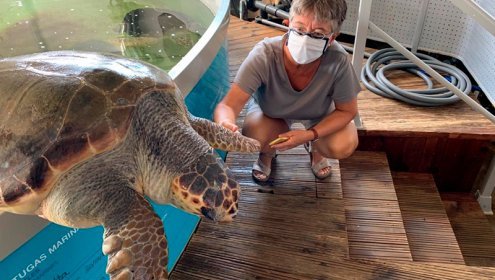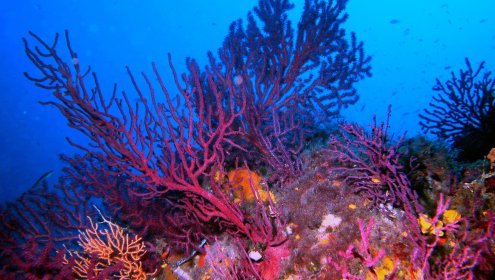LATEST TOPICS
Scientific news
FutureMARES seeks to propose solutions based on marine ecosystems for adaptation and mitigation to climate change.
A new study shows that two groups of poorly known marine protists routinely ingest viruses to absorb phosphorus and nitrogen, which has important implications for the understanding of oceanic food webs and carbon cycles.
They trigger cellular, hormonal and reproductive damage processes when in contact with cells. The effect of "invisible" plasticizers on marine species can alter their endocrine system and affect the long-term health of individuals.
The genomic resources developed by the researchers will help identify genetic factors involved in the response to rising water temperatures, which will provide new means for the species conservation and restoration.
- Researchers find the first carnivorous sponges on the Catalan coast, and they have grown on plastic!
A new study carried out by ICM researchers proves the existence, at a depth of 700 meters in the Blanes canyon, of carnivorous sponges that have grown on nylon ropes and other plastics.



